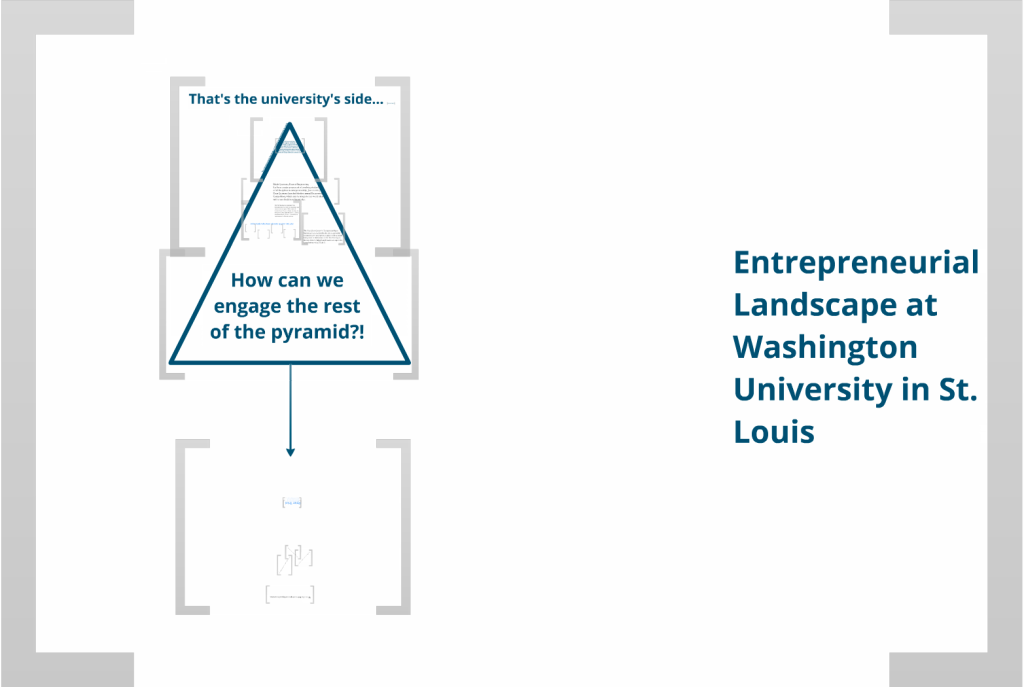Five Lessons for a Student Ambassador Candidate: Some Short Stories of Excitement, Fear, and Prezi
These thoughts and stories, and whatever messages or lessons they may convey, are not limited to the experiences of Student Ambassadors. Perhaps one of the most significant strengths of the NCIIA Student Ambassador program is its ability to quite accurately simulate student entrepreneurship; the two are not mutually exclusive!
What it means to dive head-first into a pre-med schedule while embarking on the journey of a Student Ambassador candidate?
The clock was just pushing noon. I’d already been in class for several hours. But right on time, I sat down in a quiet computer lab and logged into the WebEx call. While Humera debriefed all of us on the highlights of the week, my Prezi flew into view from its previously minimized position in the screen’s corner. While I’d like to say that everything was meticulously arranged and ready for an elegant presentation, this was not the case. I’d poured a few hours into learning about the powerful presentation tool (free academic license! woohoo!), but was still getting the hang of it. One of the more significant takeaways from my time as Student Ambassador Candidate was simply the importance of jamming productivity into every nook and cranny of every day. Maybe it’s just me, but I’m beginning to love the feeling of looking ahead to a really jam-packed day.
Lesson 1: Learn, and learn to love, using Prezi. Prepare and rehearse in advance, if only the night before.
Fortunately, my hastily written notes carried me through the presentation; it wasn’t until several months later that I realized why the SA and Epicenter leadership decided to use Prezi. Unlike PowerPoint or Keynote, Prezi incentivizes the author of a presentation to keep everything simple, light, and graphical enough to truly complement my speaking style, rather than cluttering up the flow of ideas I intend to convey.
Breathe, relax, focus
My second story (and subsequent personal lesson) is slightly less lighthearted. About three weeks into Student Ambassador training, a family emergency arose. I’m generally not one to let my personal life combine extensively with my academic and early professional efforts. However, as the distraction grew, I knew something had to give. It was at this point that I began searching for some reprieve from the daily grind. Fortunately, I had recently read about “mindfulness meditation,” more or less the beginner’s version of the age-old practice. Despite my distinctly non-mystic personal philosophies, the science (breathe, relax, focus) seemed sound enough. Suffice to say, the change was profound and nearly immediate. After just four days of meditation (exactly 15 minutes each day), my ability to focus on tasks and drive anything I started to completion radically improved.
Lesson 2: Find a healthy, uncomplicated way to regain your composure and determination. Anything goes, as long as you can stick with it!
Take it and run with it
Here’s another issue that I noticed arose both for me and my peers: it can be very unsettling to picture yourself in a newfound, and perhaps seemingly unwarranted, leadership position. After all, college teaches everyone very quickly that there’s almost always somebody who’s better at something than you. I recall being invited (perhaps even selected?) to the Student Ambassador training program and wondering, “Why do I have this opportunity?” The simplest and most elegant answer is this: you have the opportunity to pursue the Student Ambassador position and gain incredible amounts of experience and insight because you chose to pursue this non-trivial opportunity.
Lesson 3: Actively avoid looking into your past and wondering why you did not choose to explore an opportunity. The best decisions you make will often take you toward the more difficult journeys.
Net positive
Second to last, and this narrative is a short one. As you’ll soon realize (or perhaps you already do), the Student Ambassador candidacy is not for the faint of heart. Furthermore, many skills you learn as an Student Ambassador candidate will also present themselves, albeit in different and less accessible forms, during your life as a student entrepreneur. Thus, the obvious question with which I personally struggled is, does the ROI of Student Ambassador training result in a net negative opportunity cost when combined with ROI of unstructured entrepreneurial pursuits (i.e., is the Student Ambassador training a better use of time that regular student entrepreneurship)? The answer is yes, and here’s why: while some brilliant, talented, and lucky young adults can self-direct in almost all of their learning, most of us cannot. I attend college, take Coursera classes, and involve myself with the Student Ambassador “legion” because I know without a doubt that I will and do learn more with some amount of structure.
Lesson 4: Don’t shy away from structure; chances are, you’re not in the top 0.1% of individuals who can truly stay focused on learning something completely new without any outside guidance or community support.
Listen up
The final tale of the day is one I still use to motivate myself (so pay attention!). Everything was going as well as I could hope (and I’m pretty hopeful), and strangely, I began to notice that my good news wasn’t always received as positively by others as I expected. Sometimes it was a simple case of sour grapes; other times, however, I realized that I wasn’t listening sincerely and completely to others’ updates, good and bad. Particularly when you feel strongly about some part(s) your life, for better or worse, it can be very easy and very dangerous to cast aside the feelings and news of others in favor of sharing your own. While I sincerely doubt we’ve evolved to have two ears and one mouth simply because we’re supposed to listen twice as often as we speak, there is serious value in the skill of paying wholehearted attention to everyone with whom you interact. This is especially true when you, my fellow Student Ambassador or candidate, only speak every week or so with the rest of the Student Ambassador team. This leads me to the last lesson, which needs no explanation…
Lesson 5: Don’t let your excitement, whether it’s positive, negative, or somewhere in between, pull you away from paying attention to others.
By all means, please send comments, critiques, quandaries, and croissants to blake@blakemarggraff.com or post your comments below — I’m happy to keep the dialogue going!
 Blake Marggraff is a Student Ambassador and currently a sophomore and Biochemistry major at Washington University in St. Louis, where he is enjoying a life of academics, multiple business ventures, and the occasional hiking or camping trip. Prior to attending Washington University, Blake won the top award at Intel’s International Science and Engineering Fair with a project that used pegylated tin to augment the efficacy of radiation therapy for treatment of simulated cancer cells with low to mid-energy X-ray sources. Blake’s enthusiasm for entrepreneurship began with his success in numerous public speaking competitions, and was furthered by his work as a leader of local National Youth Leadership Training courses. Looking toward the future, Blake intends to help shape the bioethics and consumer biotechnology industries, while inspiring peers to engage in entrepreneurship.
Blake Marggraff is a Student Ambassador and currently a sophomore and Biochemistry major at Washington University in St. Louis, where he is enjoying a life of academics, multiple business ventures, and the occasional hiking or camping trip. Prior to attending Washington University, Blake won the top award at Intel’s International Science and Engineering Fair with a project that used pegylated tin to augment the efficacy of radiation therapy for treatment of simulated cancer cells with low to mid-energy X-ray sources. Blake’s enthusiasm for entrepreneurship began with his success in numerous public speaking competitions, and was furthered by his work as a leader of local National Youth Leadership Training courses. Looking toward the future, Blake intends to help shape the bioethics and consumer biotechnology industries, while inspiring peers to engage in entrepreneurship.





